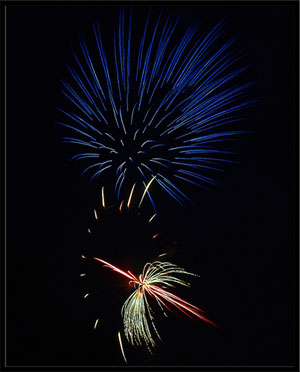 I’m still pinching myself. I’m sure I’ll wake up and find it was all a dream. In all my 17 years as principal clarinetist of the Columbus Symphony, I’ve never been this optimistic about my career.
I’m still pinching myself. I’m sure I’ll wake up and find it was all a dream. In all my 17 years as principal clarinetist of the Columbus Symphony, I’ve never been this optimistic about my career.
Four years ago I was chosen to be on the search committee to choose a new music director of the Columbus Symphony Orchestra. The music director is much more than a conductor, especially in the US. He not only shapes the musical product of the orchestra, but fashions the image of the organization to draw financial support. The music director IS the organization to the public eye. Big shoes.
Oddly enough orchestral musicians have not traditionally been asked to help choose the MD (music director). We are obvious choices, considering our experience and skill in the orchestra, and since it’s our jobs which are at stake. Who better to choose our musical soul mate than us? But we are perfectionists. Our relationship with the MD is intimate, and the glamor sometimes wears off. Hirokami even joked about it, saying “I hope the honeymoon lastsâ€. Something tells me it will last this time.
The search had been rocky, with some candidates popular among the elite supporters of symphony and not the orchestra. The point was to choose someone who could flourish both on and off the podium. We were all worried that a universally loved candidate would not appear.
The very last candidate was Junichi Hirokami. He is Japanese, 4′2″ in height, and spoke broken English. But the musicians loved him. His natural ability with musical phrasing, rhythm and style elicited our best playing. His charisma was infectious. My friends who attended that first weekend raved about him. So after only two “dates†with him, we used our newly acquired clout to recommend him the sole candidate.
As a committee member, I felt the responsibility of my position in shaping the future of the orchestra. There were some contentious meetings where reasonable doubts were raised about Hirokami’s ability to raise money and commune with needed donors. I wondered myself. He had never run an American orchestra. But he promised full attention to anything necessary for us to succeed and flourish. He really, really loved us as an orchestra and desired to take us to the next level. I believed him. So did most of the orchestra.
In response to the non-musician committee members doubts about his ability to flourish off the podium, I used a business model to clarify my point. I asked them which is more important in the long run: a great marketer or a great product? Ultimately, the quality of the product is what sells it. My arguments, along with the excitment of the other musicians on the committee must have had an effect. They chose to take a chance and agreed to hire him. I was elated, but uneasy.
The negotiations took several months. The musicians became apprehensive, perhaps a lover’s fear of being jilted. Understandably we were nervous that our dream would pop. Hirokami was slated to appear in February, and only two weeks before his engagement it became official. Finally. He was to be our next music director. We were relieved. But I still didn’t exhale.
In the first rehearsal his familiar, friendly way of leading continued from the two “dates†we had with him before “marrying†him. In fact, he was almost too friendly. He kept saying, “Just relax and trust yourselves.†Why? Now that he was our boss, shouldn’t he criticize us more to improve the product? His tempos were relaxed. Perhaps too relaxed. Where was the excitement? Uh-Oh! Were we merely drunk with love on the first two dates? Was I the nervous bride with cold feet?
A press conference was held after the rehearsal to splash the news of his arrival around town. President Bush happened to be in town, so the press crowd for us was bare minimum. Lucky for us. In responding to the first question asked of him by a reporter, Hirokami became confused and had trouble understanding. My spirit sank. This wasn’t looking good.
Thankfully he perked up soon after and gave an impressive interview to Barbara Zuck stating clear goals for the orchestra. At the many hobnobbing parties held through the week, he was direct about asking for money. He began to fashion an iconography, using a green handkerchief to symbolize peaceful world relations. He hailed the American principal of “freedom†as the reason for his being hired and emphasized the value of international connections. He was building bridges artfully and skillfully. His wife and daughter were a big hit. His charm and charisma reached beyond his differences. This relieved me, but I was still apprehensive about the musical product.
Friday night arrived. I showed up early to work on reeds and warm up thoroughly. I wanted to play my best, especially since the we in the orchestra had chosen him. Junichi Hirokami walked out on stage. The musicians all stood in the traditional respect for the conductor. The maestro was dwarfed among the towering American bodies. He stepped onto the podium, and after acknowledging the audience, he smiled at us. He lifted his baton and gave the downbeat.
The first piece was Dvorak’s Carneval Overture. Though the tempo matched what he had rehearsed, the spirit was fresh. Maestro Hirokami exuded control and confidence far beyond his diminutive stature. He was larger than life. He knew exactly what he was doing. The orchestra played buoyantly, as someone who jovially laughs in celebration of great fortune. Music was encouraged and allowed to flow from us. Our desire to play well rose up to meet the maestro’s geniality. The audience seemed to agree, judging by the enthusiasm of their cheers.
After the concert, I remembered a question Maestro Hirokami had asked us rhetorically; “Why isn’t your orchestra more famous?†Now, rather than doubting him, I was thinking, “Why not?â€
Pinching myself never felt so good.



 I think about trust a lot. Trust of friends, family, lovers, animals, and especially trust of one’s self. I realized a long time ago that once damaged, trust takes a long time to heal. It’s like a house of cards. It takes time to build and can collapse in a second.
I think about trust a lot. Trust of friends, family, lovers, animals, and especially trust of one’s self. I realized a long time ago that once damaged, trust takes a long time to heal. It’s like a house of cards. It takes time to build and can collapse in a second.